The Best Spanish Language Schools in Spain
Spanish Language Schools in Spain
The purpose of learning any language is to communicate and connect with others and better understand a culture different from your own. Spanish, being the second most spoken language in the world, is a good place to start if you want to be able to do that with as many people as possible. Not only is it spoken in 44 countries around the world, but it is also projected to be the first language of 50% of the U.S. population by 2050. Knowing Spanish can help you significantly without even leaving the country!
There are two types of Spanish – Latin American and European – both associated with distinct sets of vocabulary, accents, and cultural nuances. Learning Spanish in Spain will expose you to the “proper Spanish”, as Spaniards like to point out, and will allow you to immerse yourself in the centuries-old traditions that this pocket of Europe has to offer.
Read the guide on this page written by Go Overseas experts, just for you. Then choose a Spanish language program in Spain from the list below. You’ll be well on your way to becoming a fluent Spanish speaker!
Choosing the right Spanish program for you depends on your purpose for learning the language and your personal goals for when you leave Spain. Think about whether you want to become fluent, learn vocabulary related to a specific field, have full cultural immersion, gain some extra language knowledge while traveling around.
Programs can range from a couple of weeks to a full academic year. The popularity of the language (it’s the second most learned in Europe) means that nearly any kind of program to suit a student’s needs will be available; you can take classes with other foreigners, be enrolled in a Spanish university, do an internship at a Spanish company, and more. Be aware that region will affect the vocabulary that you learn as well as the accent, and other languages can play a factor – i.e. many people in Barcelona also speak Catalán.
Program Types
- Language study & culture immersion programs: This option usually allows you to have a mix of classes with both foreigners and natives, depending on how much of a challenge you want, and the option of a homestay with a Spanish family for around-the-clock practice. A student whose goal is fluency, or at least conversational abilities, and a well rounded understanding and participation in the local culture would thrive in this type of program.
- Group classes: If you have no need to take specific university classes, or if you’re working while in Spain, take group classes with others who are in the same situation. This is better for someone trying to function in Spanish society on an everyday basis. Colloquial vocab and grammar is a bigger focus in these classes, and students learn from each other more than from a book because examples come from real life situations. Functionality is the main goal before fluency.
- Language study and internship combination programs: With big international cities like Madrid and Barcelona, gaining Spanish business knowledge is possible through language and internship programs. Go to language classes at night and use the words and phrases that you’re learning in the office during the day. This option is best for those looking to gain a new dimension of experience in their field while being forced to learn the language and apply it quickly.
Cultural Immersion/Extracurricular Activities
Because Spain is not very large, it is easy to travel independently on weekends and see much of the country in a short time. For that reason, immersion-based programs, especially ones with a homestay option, are your best bet for learning as much about the country as possible. Choose programs that will get you involved with the local community and out exploring the area you’re studying in. Spain has a lot of national holidays that are celebrated in full force with extra days off work, parades, huge festivals, and live music that will give you great insight to the local culture.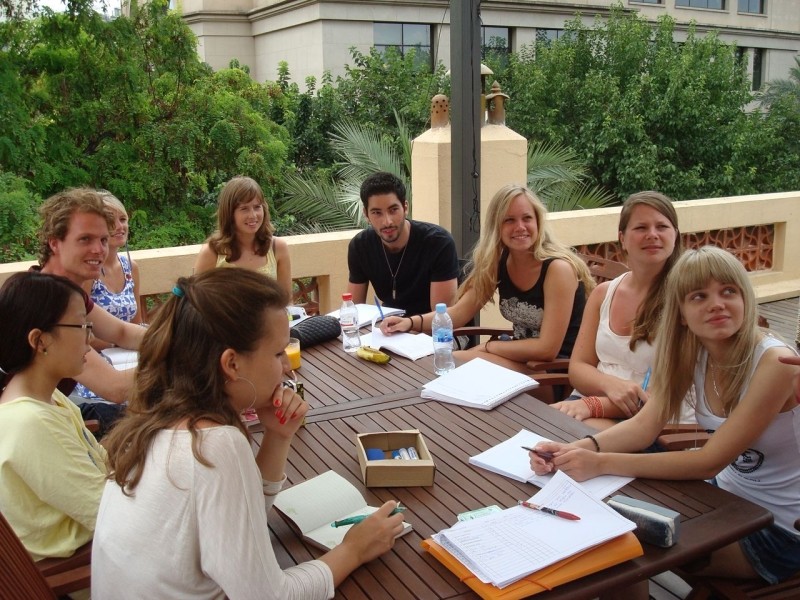
Madrid
Madrid has been the country’s capital since the 17th century and is easily the most “international” city in Spain; the stereotypically slower paced Spanish way of life is less relevant here, especially in the center where business people can be seen bustling about at all hours of the day. Over 80% of Madrid’s inhabitants are Spaniards, with a majority of outsiders coming from Latin America.
Any sort of language program you can imagine will be offered here, and you will learn the most standard (and understandable) accent. The downside to studying in Spain’s capital and biggest city is that there will be tourists abound and you can get away with using English as a crutch much easier than in other regions. Hit up the Golden Triangle: Madrid’s triad of art museums made up of the Prado, Museo Nacional Centro de Arte Reina Sofia, and Museo Thyssen-Bornemisza.
Barcelona
Located on the coast of Spain’s most northeastern autonomous community of Catalonia, Barcelona is considered the best beach city in the world.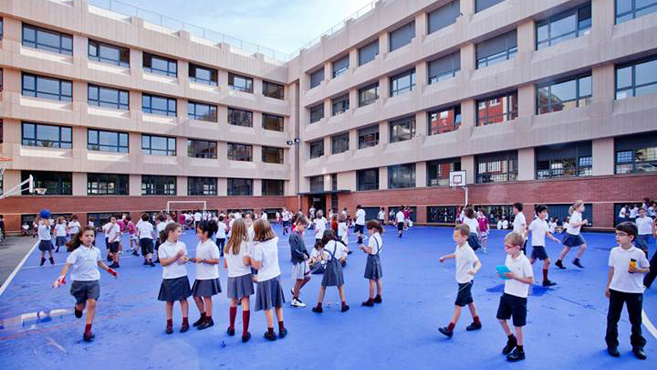
Andalusia
Andalusia is the southern most autonomous community of Spain and home to several notable cities, like Seville and Granada. Because it is closest to Morocco, there is a notable Muslim influence. The accent used there is known to be more difficult to understand than in the central region of Spain – locals mumble and tend to not pronounce “S”s. This region may be of more interest to those studying fine arts or architecture because of the mixed cultural influences on both. Check out the Alhambra in Granada. Walk along the Guadalquivir River in Seville, and go to Feria de Abril if you’re there in April!
Why Learn Spanish In Spain?
Trying to learn and use a new language in a foreign country is going to be intimidating, but that’s what will push you to learn the quickest.
Better yet, learning Spanish in Spain will allow you to live the Spanish way! Life is fast-paced in the U.S. Take advantage of the time you can dedicated to learning the Spanish language and culture, and RELAX. Enjoy a meal for two hours, stroll through the parks and chat with street artists, spend time with your adopted abuela in a homestay, and open your mind to a new way of communicating.
Highlights
- Check out the crowd: Spain is home to about 47.
4 million people, 74% of which speak Castilian Spanish (Catalan, Galician, and Basque are the other commonly spoken languages, depending on region).
- Did you know..? Spain produces 44% of the world’s olive oil. Pour it on!
- School’s out, let’s have some fun: Spain is known for its ability to enjoy life, and especially, for tapas. Find any café or restaurant with some outdoor seating to share a pitcher of sangria and a plate of queso manchego or jamón serrano with friends while people watching
- Wow others with an Idiom! “El que tiene boca se equivoca” = He who has a mouth makes mistakes, which we’d say as, “everyone makes mistakes.”
You don’t need a visa if your stay is less than 90 days. Beyond that, you should check with the Spanish consulate nearest you, but can apply 3 months before departure. Processing can take up to 2 months, so apply ASAP within the 3-month timeline.
As a general rule of thumb, Europe is going to be more expensive for U.S. travelers due to exchange rates. Programs with fewer “perks”, like pre-planned excursions, will be more affordable; if you’re on a budget, look for those bare bones programs that only offer classes and help finding a place to live.
You cannot legally work in Spain without a proper work visa, but some students offer private English lessons as a way to make some cash while traveling the country. The best ways to save money are to avoid the biggest cities, where prices are inflated for tourists; smaller beach towns offer lower prices and fresher food. Northern Spain is great for free outdoor activities, like hiking. Shopping locally is your best bet to not only save money but get you interacting with locals, as well.
Scholarships
- Program-specific scholarships: Many of the larger study abroad companies offer scholarships exclusively to their participants, which increases chances of getting one since the applicant pool is smaller. They tend to be smaller amounts ($250-$1,500), but help to offset costs, like transportation.
- University-specific scholarships: Either from your home university or the university where you may be studying in Spain, scholarships are offered for language and cultural studies. These can range from a couple hundred dollars to the cost of your program’s tuition.
- Go Overseas “65 Study Abroad Grants and Scholarships”
EF International Language Campuses
Learn more.”>
Learn Spanish in Spain with EF
Learn Spanish with EF in some of the world’s greatest cities. With…
Spain
4.81 •36 reviews
Centro MundoLengua
Intensive Spanish Courses in Spain
Immerse yourself in the Spanish culture, lifestyle, and language with.
Spain
5.00 •3 reviews
Canterbury TEFL
Spanish Adventures Language Classes
The Spanish classes are at the school at different times between 10:00…
Spain
4.82 •11 reviews
Top 8 Best Spanish Schools in Spain
At Go! Go! España, we’re the experts on the best Spanish schools in Spain.
If you’re curious about studying abroad in Spain, we’ve got all the materials on applying for a student visa and adapting to daily life in Spain.
Still, when it comes to choosing a study program, you might feel like you’re on your own. That is, until you see our list.
Best Spanish Schools in Spain
We compiled a list of some of the best Spanish schools in Spain! Not finding exactly what you’re looking for here, message us for help or check out our favorite language schools here. If you’d prefer a super short yet immersive trip, you should try a study trip.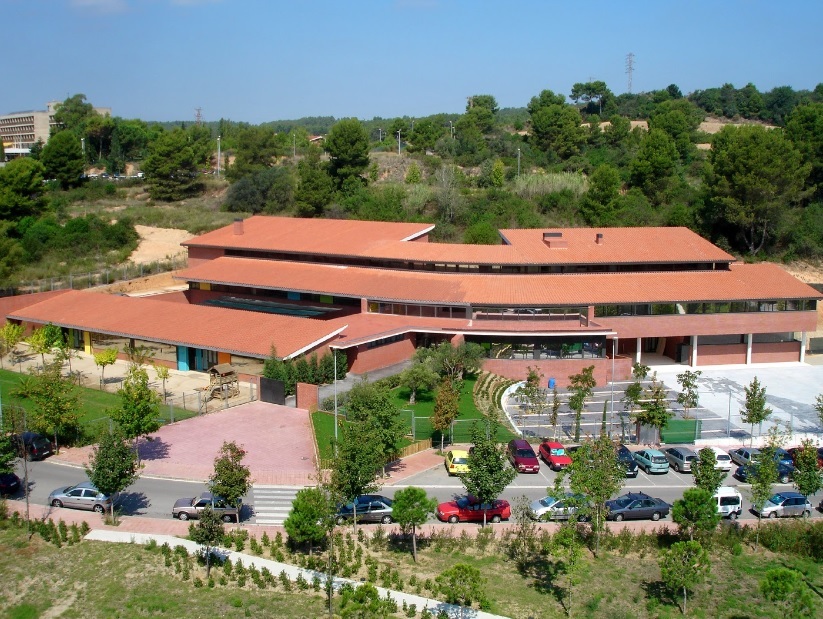
If you’re craving a beach escape, make sure to study Spanish near the beach!
1. Taronja in Valencia
Fun and Functional Lessons in Spanish
Taronja mixes fun and functional so well, you may not even realize how quickly you’re learning Spanish. As one of the best Spanish schools in Spain, Taronja aims to immerse students in Spanish learning by taking their lessons out into the world.
When not in the classroom, Taronja enriches their Spanish study in Valencia with social lessons such as city tours, Spanish cooking lessons, and paella parties, all of which are included in the price of the course!
On top of the 20-hour weekly in-class lessons, there are optional “field trips” to different cities and festivals near Valencia at small additional costs.
2. AIL Madrid in Madrid
Challenging Yet Cultural Lessons in Spanish
AIL Madrid (or Academia Internacional de Lenguas) has a high-intensity rating, which means you’re sure to learn Spanish at an accelerated rate.
At AIL, teachers stage debates and role-play to make practicing Spanish conversation lively. One of the greatest aspects of AIL Madrid is its location; in the heart of the city, visiting cultural sites and museums in Madrid is easy and included in the curriculum, which makes AIL one of the best Spanish schools in Spain.
3. Malaca Instituto in Malaga
An All-Inclusive Spanish School in Spain
We’d recommend you check out the Spanish schools in Malaga for the beach vibes and year-round warm weather. However, thanks to Malaca Instituto, there are tons of reasons to recommend this Spanish language program in Malaga.
The beautiful campus of this Spanish school has everything you need. If you study here, you won’t have to look for an apartment in Spain; they have bedrooms onsite for students.
Malaca Instituto’s services don’t stop there, however.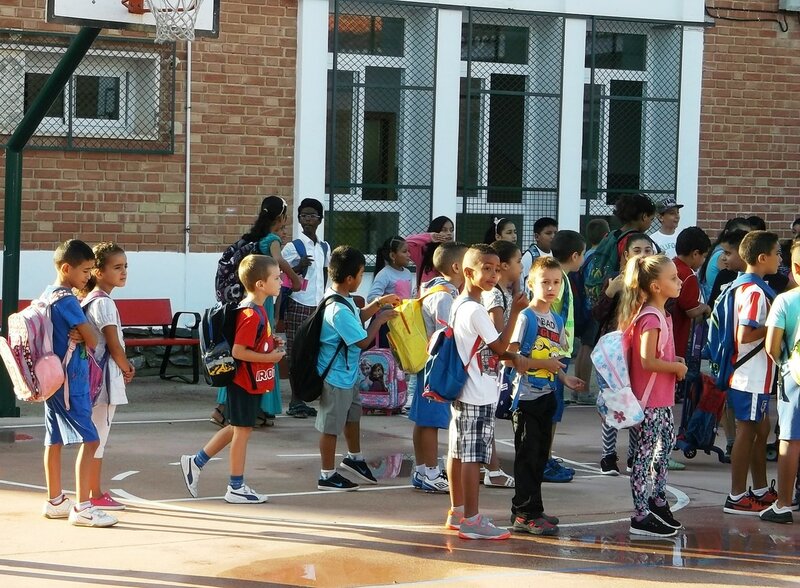
This Spanish course is more like a vacation!
4. Expanish in Barcelona
A Real Immersion Spanish School
If you’re looking to learn Spanish in Barcelona, this is the school for you!
Expanish organizes mind-blowing activities all over Barcelona in order to create a real immersion experience. In their small classes, they focus on grammar, vocabulary, and reading, and writing.
Expanish offers Spanish courses in Barcelona with meticulous organization and academic excellence in outstanding facilities!
For authentic cultural events, you should study Spanish in Andalucia.
More of the Best Spanish Schools in Spain
Still haven’t found out which of the best Spanish schools in Spain is the right one for you? Here are some more of our favorites:
5.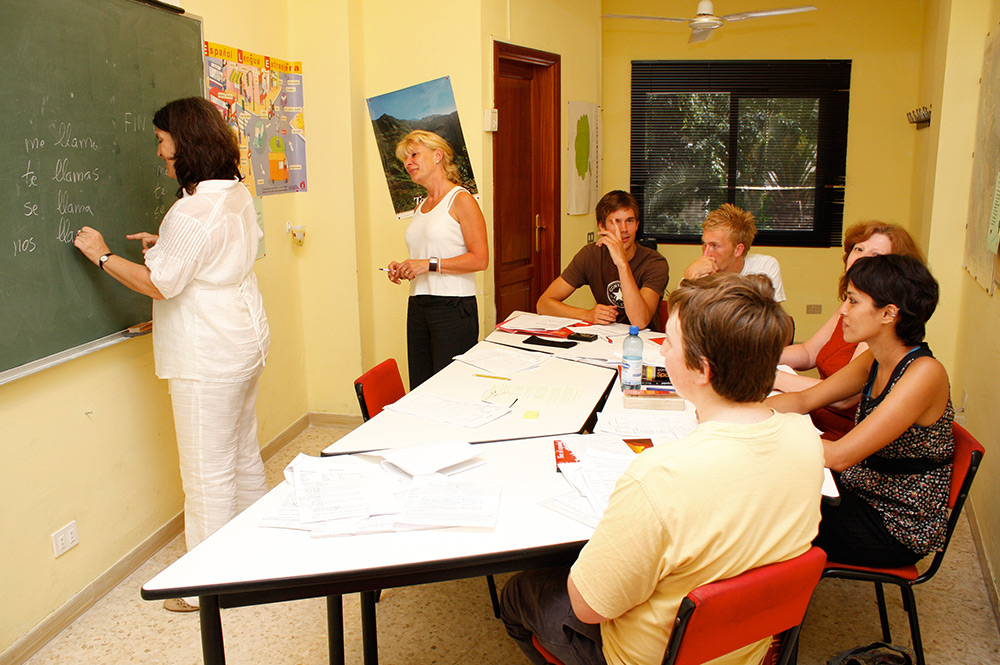
Best Spanish school in Spain for foreigners
Each week Proyecto Español gives students a chance to practice Spanish with actual Spaniards to improve their conversational skills.
6. CLIC International House in Seville
A Deep Spanish Cultural Experience
CLIC IH is a culturally focused school in one of Spain’s most iconic cities. This is the best school for those interested in Spanish traditions or the culture of Andalucia. Plus, flamenco lessons are part of the curriculum!
7. Instituto de Idiomas in Ibiza
Learn Spanish in the World’s Most Famous Party Island
Instituto de Idiomas Ibiza offers Spanish courses taught by well-qualified teachers. What’s more important: the school is super close to the beach and it’s possible to learn how to be a DJ in Spanish. If you’re looking for a party program, this is it!
8. Lacunza International House in San Sebastián
A Spanish Learning and Gastronomical Experience
Lacunza IH offers a wide offer of amazing Spanish programs, all of them provided by highly qualified teachers.
On top of that and thanks to its location right in front of the Atlantic ocean, Lacunza IH also offers a Spanish program combined with surf lessons!
Tags: best spanish language schools in spain, learn spanish in spain, study abroad in Spain, study spanish in spain
School in Spain. Secondary education in Spain. Spain in Russian
If you are planning to move to Spain, one of the important issues is the choice and enrollment of children in school. Spanish legislation obliges parents, both Spaniards and foreigners permanently residing in its territory, to provide children with primary and secondary education. Primary and secondary education in Spain for Russians is available in almost any school, but under certain conditions, which will be discussed below.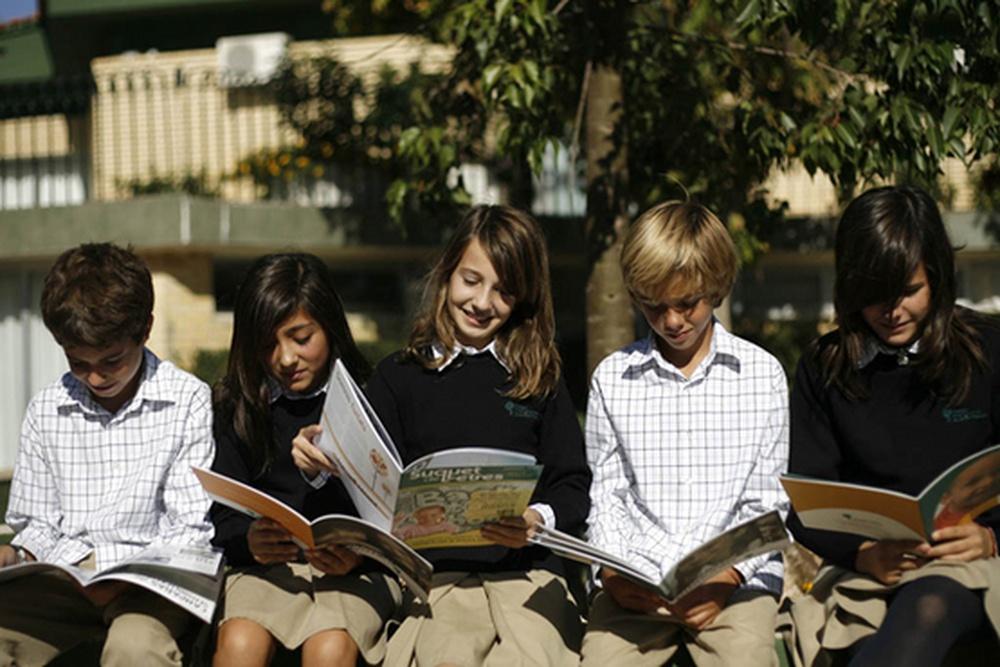
Structure of primary and secondary education in Spain
School education in Spain is organized as follows: children enter primary school at the age of 6 and study there for 6 years. At the age of 12 they are transferred to a secondary school where they study for 4 years.
After graduating from high school in Spain, you can continue your studies at Bachillerato High School if you plan to enter a University in Spain, or enroll in an FP vocational education course.
At the end of 2013, significant changes were made to the country’s education system, in particular, secondary education in Spain, the legality of which was challenged by the opposition in the Constitutional Court (the final decision on the issue has not yet been made):
Schooling in Spain now requires a final exam in both primary and secondary schools.
Graduation criteria for the final exam are established by the Central Government in agreement with the regional authorities (previously, the regions decided this issue on their own).
The last year of secondary school is now considered preparatory to Bachillerato High School or vocational training. Therefore, at the end of the third grade of secondary school in Spain, the student must choose one of two directions.
You can see the visual structure of school education here.
Types of schools in Spain
There are 3 types of schools in Spain:
- Public schools (colegios públicos)
The undoubted advantage of the public school in Spain is its free (except for the purchase of textbooks by parents and minor administrative expenses). Among the shortcomings it is worth highlighting: - equipment sometimes outdated and in need of repair;
- a large number of students in the classroom, which often does not give the teacher the opportunity to pay attention to each student;
- the presence of a large number of children from dysfunctional families, which does not have the best effect on the discipline and overall academic performance of students.
Note that if you do not yet live in Spain, but are only planning to move, secondary education in Spain for Russian children in public schools is not possible. This requires a residence permit in Spain. When applying for a residence permit in Spain without the right to work, you must provide the Spanish Consulate with confirmation that the child is enrolled in a private or semi-public school.
- Semi-public schools (colegios concertados).
Funded in part by the Catholic Church or local government. Despite being funded by the church, teaching in a Spanish school of this nature is secular. The educational model in these schools is based on the Spanish education system, but as a rule, more attention is paid to learning languages. - Private schools in Spain (colegios privados).
First of all, these are international private schools in Spain. Education in a Spanish school of this kind can only be based on a foreign education system with the inclusion of a number of compulsory subjects in the education system in Spain.The most popular among Russians and other foreign citizens are English or American schools in Spain. Or these are Spanish schools that synthesize two education systems and provide an opportunity to obtain an international baccalaureate diploma (A Level, IB).
Language of instruction at school
The language of instruction is an important issue that deserves separate consideration. Schools in Spain for children teach in Spanish. The exception is schools located in regions of Spain where, along with Spanish, there is a second official language. (Catalonia, Valencia, Galicia, Basque Country).
Learning in schools in Spain the second official language (Catalan, Valencian, Galician and Basque) is compulsory. The number of hours of learning a second official language varies by region. The leader in this case is Catalonia. Below we will consider this issue separately.
American and English schools in Spain provide instruction in English. A good level of English is a requirement for admission. Spanish is studied as the first foreign language. If we are talking about a school in a region with two official languages, then in addition to Spanish, the second official language is also studied.
If you plan to enter an international private school in Spain with a Spanish education system, then knowledge of English and Spanish is required for admission, because. education in such schools is conducted simultaneously in two languages. The older the applicant, the better they should speak Spanish and English. Language proficiency is checked upon admission. The requirements for entrance examinations must be clarified in each case.
Learning Catalan in Spanish schools
Catalan is compulsory in all schools located in Catalonia. This is not just another subject, the teaching itself is conducted in Catalan, with the exception of only a few disciplines. Spanish law obliges the regional authorities to provide education in Spanish at the request of the child’s family.
In international private children’s schools in Barcelona and other Catalan cities, the study of the Catalan language is also mandatory. However, some schools make an exception for foreign students in the first years of study in order to reduce the language load, which has a positive effect on the child’s adaptation to new conditions. However, if you plan to later enroll in one of the universities located in Barcelona or other cities of Catalonia, studying Catalan is a must.
We recommend clarifying the issue of learning the Catalan language during a visit to a school in Barcelona and other cities of the Autonomous Community. For admission to the upper classes of some private schools, knowledge of the Catalan language is mandatory even for foreign applicants.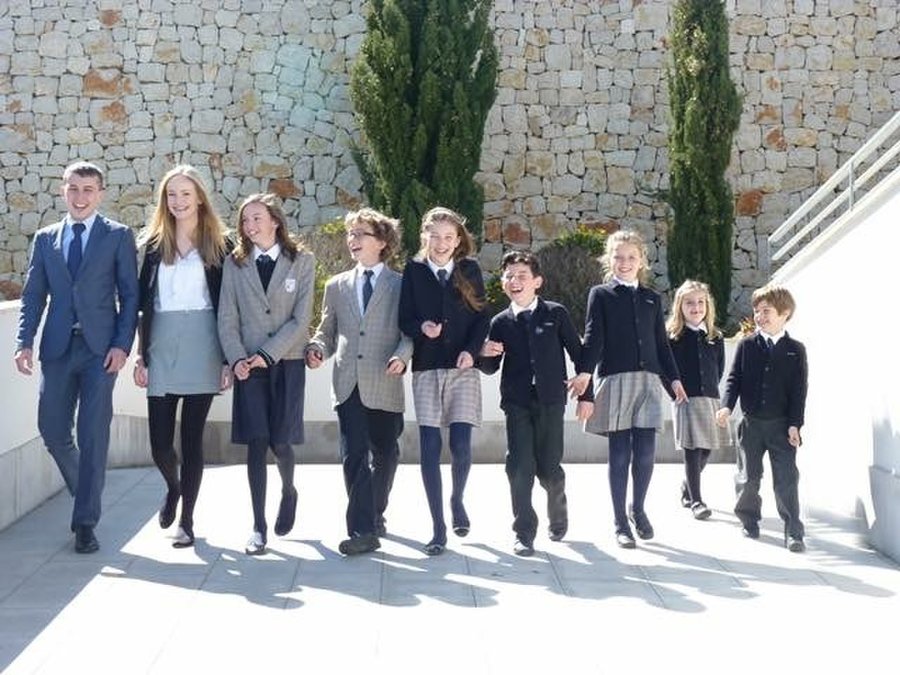
For more information on secondary education in Spain, visit ineed.es.
Center of services for business and life in Spain “Spain in Russian” for many years helps parents in organizing the education of children in Spain, in particular, selects schools in Barcelona for Russian children. Our specialists will advise you on all issues and assist you at all stages, from finding a suitable school, enrollment, and ending with the selection of housing and paperwork for children and parents. If you need information about Russian schools in Spain, as well as any assistance related to the issue of education in Spain, our highly qualified specialists will be happy to help you.
Now you can read the most popular articles about life in Spain and useful life hacks from insiders on our Yandex.Zen page. Subscribe!
The Spanish Russian Service Center is your guide to studying in Spain.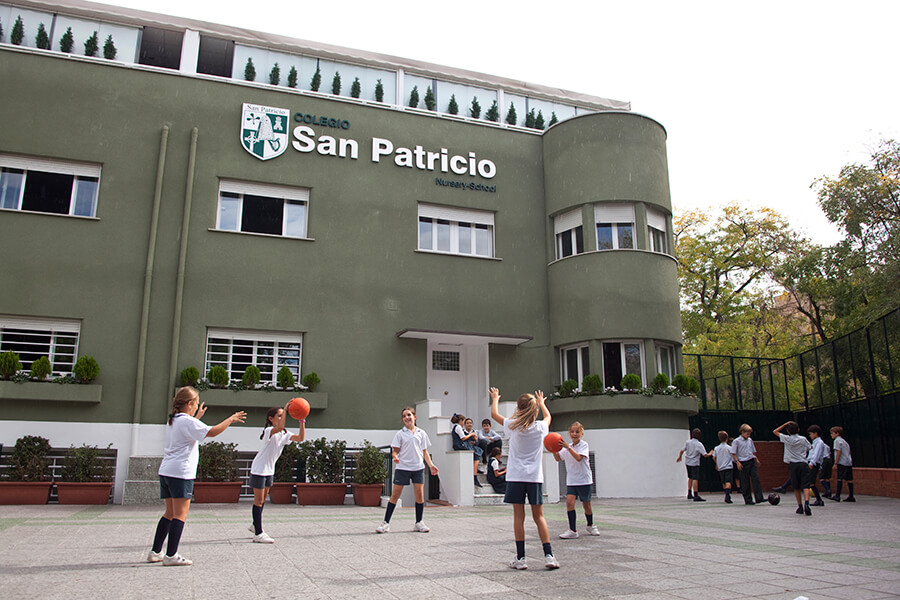
+7 495 236 98 99 or +34 93 272 64 90, [email protected]
Was the article helpful?
Yes
(10)
Your criticism helps us improve the content. Please write what is wrong.
Send
No
(0)
Secondary education in Spain, private boarding schools in Spain
Spanish private schools are not only an opportunity to learn two prestigious languages and prepare for admission to universities in Europe, Britain and even the USA, but also living in a country with a rich history and a pleasant climate . If you want to send your child to study in Spain, this section is for you! Here you can find out what Spanish schools are, how to enter them and how much a secondary education in Spain costs.
Secondary education system in Spain
Secondary education in Spain is compulsory from 6 to 15 years of age. Education is divided into two periods: Primaria – an analogue of the Russian elementary school for children 6-11 years old and the “secondary” school Educación Segundaria Obligatoria – for students aged 12-15 years. The last two classes of high school (15-18 years old, Bachillerato) are no longer required and are preparation for entering universities. At the end of each year, high school will have to take exams, but they will be transferred to the next class with two “tails” that can be retaken in the fall. Education is conducted in Spanish or the local dialect, or in English, depending on the type of school.
Publicly funded schools
There are two types of public schools in Spain: completely public – colegios públicos, free of charge, and co-funded – colegios concertados. The latter, in addition to local authorities, can be financed by the Catholic Church, but education still remains secular.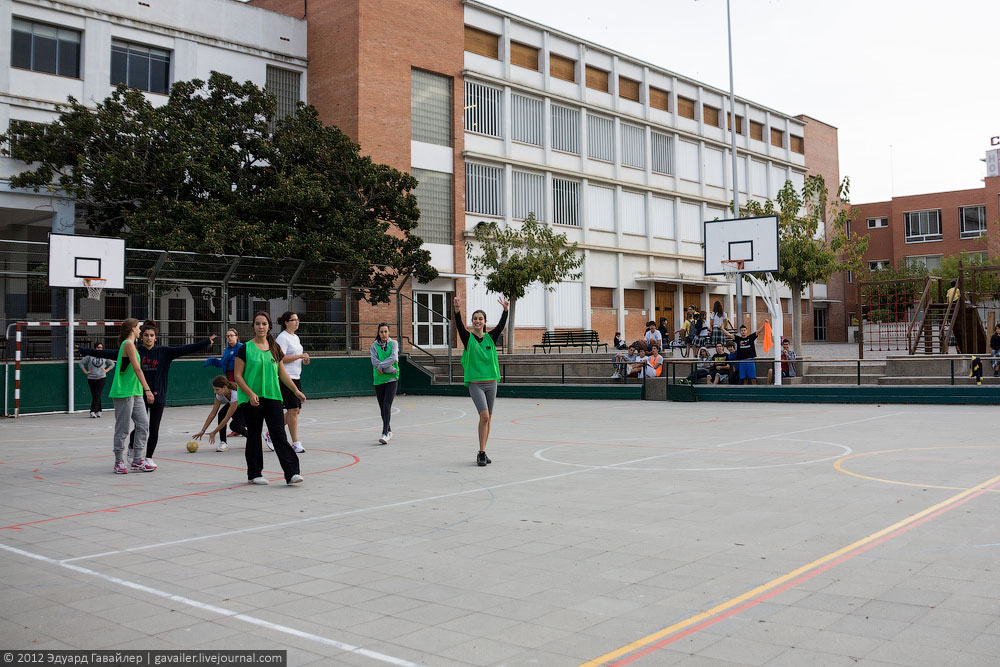
Semi-public schools also accept children in the community, because that is what they receive subsidies for. But some places are distributed by competition, so foreigners have more chances here.
Private boarding schools in Spain
International students usually choose private boarding schools. The most popular type of private schools (colegios privados) in Spain are English-speaking. Teaching here is conducted mainly in English, in Spanish, only certain courses and electives. In addition to the obvious – small classes, good technical equipment, teaching in fact in two languages, and invited teachers, Spanish boarding schools have another very important advantage: choosing a school, you have the opportunity to decide which final exam your child will prepare for. Most Anglo-Spanish private schools in Spain are accredited by the British Council, which allows you to take as a final exam not only Selectividad (an analogue of the Russian USE for admission to Spanish universities), but A-Level, with which you can enter British universities.
Enter a private boarding school in Spain by competition, but foreigners have the highest chances here, as usually such schools position themselves as multicultural institutions and, therefore, are interested in you and your children. Many private schools offer introductory programs for an additional fee, when your child during the first year of study intensively learns languages in addition to the main program. Also a huge plus is that most of these institutions have their own residence, and therefore the child can go to Spain on their own. Usually the residence accepts children aged 15-18, but sometimes younger children (for example, King’s College from 9years).
How to enter a Spanish school?
The year in Spanish schools is divided into trimesters, starting in mid-September and ending in the second half of June. In publicly funded schools, new classes usually begin in April-February.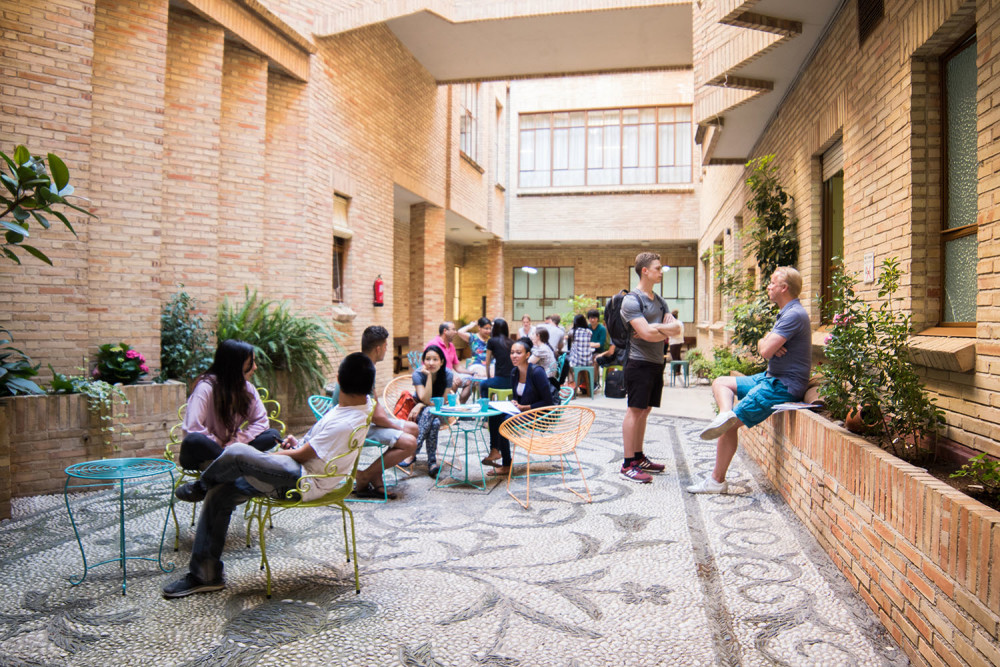
As a general rule, admission to a Spanish private international school requires an interview, an exam in the language of instruction, and sometimes a general or subject test (such as mathematics). Depending on the prestige of the educational institution, it is necessary to submit documents 1-2 years in advance.
The cost of secondary education in Spain
Compared to Europe (and especially Britain), it can be said that secondary education in Spain is relatively cheap. Education in a private school in primary grades will cost from €3,000 to €7,000 per year, middle and senior classes – from 8,000 to 20,000 euros.
Spain is not only a competitive secondary education, but a wonderful climate, good environment and rich history. The time spent in this country will favorably affect both the health and the horizons of your child.

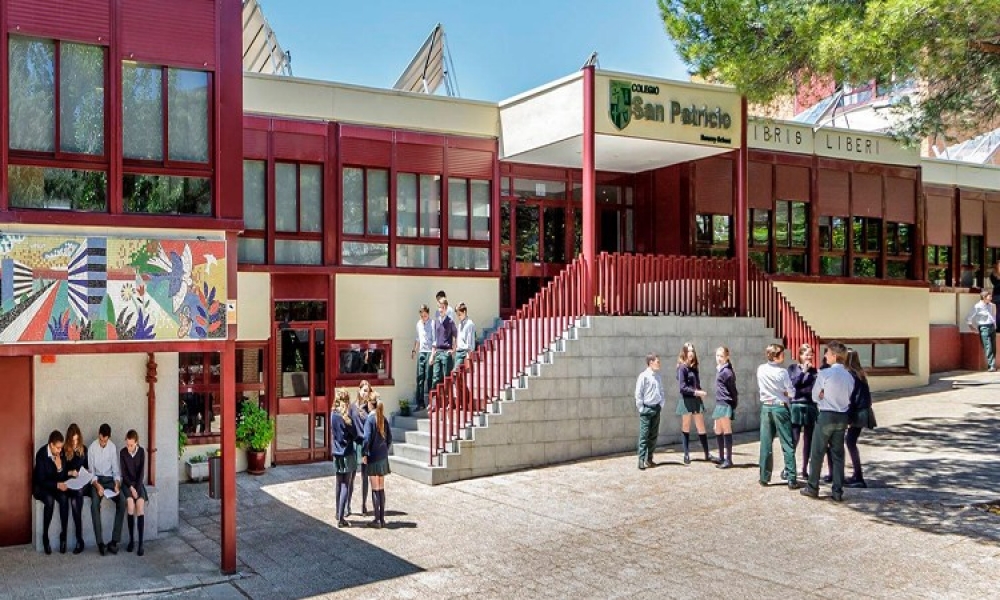
 4 million people, 74% of which speak Castilian Spanish (Catalan, Galician, and Basque are the other commonly spoken languages, depending on region).
4 million people, 74% of which speak Castilian Spanish (Catalan, Galician, and Basque are the other commonly spoken languages, depending on region).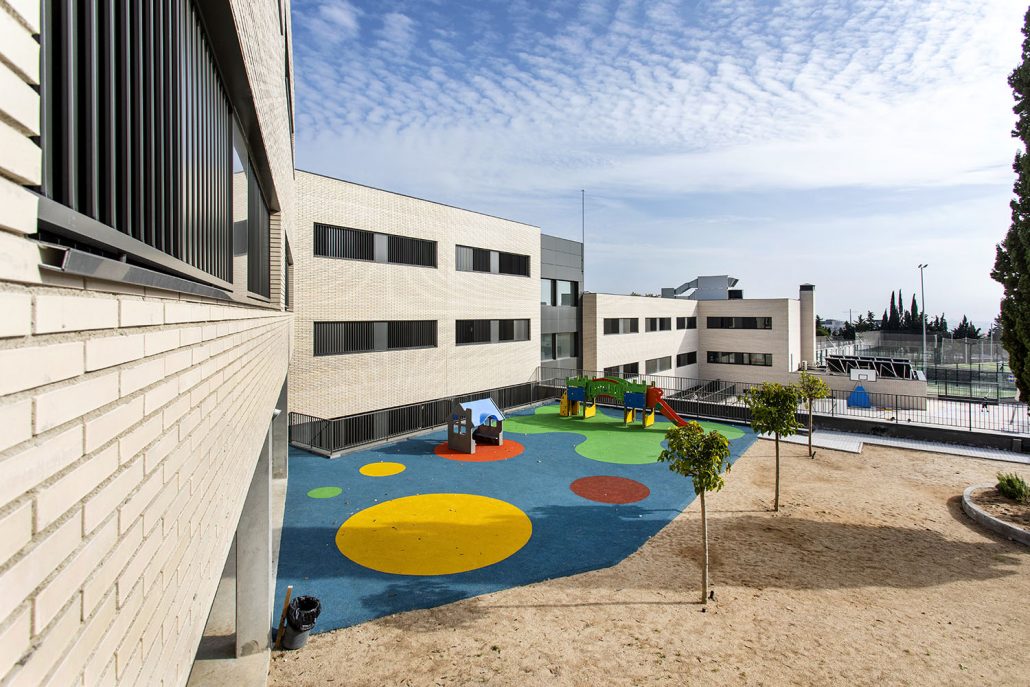
 The most popular among Russians and other foreign citizens are English or American schools in Spain. Or these are Spanish schools that synthesize two education systems and provide an opportunity to obtain an international baccalaureate diploma (A Level, IB).
The most popular among Russians and other foreign citizens are English or American schools in Spain. Or these are Spanish schools that synthesize two education systems and provide an opportunity to obtain an international baccalaureate diploma (A Level, IB). 